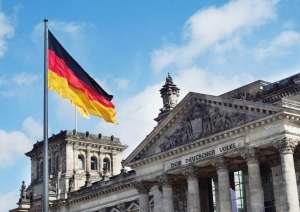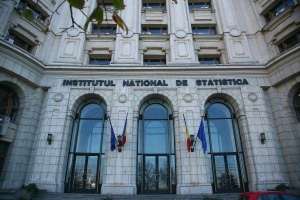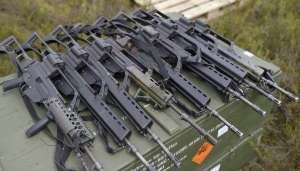Reading the heavy duty polemic of last week's issues of the newspaper, along the appointment of a new General Manager of the BSE and becoming nostalgic at the evenings of debates taking place at a speed of over 100 IQ, when the BSE was becoming operational, I have decided to break my self-imposed silence and have decided to enter the arena together with these two awesome polemists: Make and Doru NICOLAESCU. Reflecting on the birth of some public institutions in the young Romanian princedoms, Titu MAIORESCU wrote that "we are a nation of forms without substance". How right he was! The issue of the BSE and of many other institutions fundamental which are fundamental to a capitalist system, meant to modernize and normalize the Romanian society, is that they have been created as forms without substance.
Of course you, Make, my dear friend, are right! The Romanian Parliament, the Romanian Government and the National Bank of Romania put in a lot of work to create this new fundamental economic sector which is necessary in a market economy, the capital market.
But was the BSE the child that everyone wanted? Was it the child raised in the family's living room, or a child abandoned and left to fend for itself and find the resources needed for its growth and development wherever it may find? Was the BSE developed as legitimate member of the new post-December democracy or was it just the black sheep of the family, which was supposed to be kept alive only so it can be shown in case someone from abroad came checking to see whether it was still alive?
Had it been more than a vehicle of the privatization process intended to get the international institutions to shut up, then the government bonds could have been issued by the Ministry of Finance directly at the BSE, because, as far as I can recall, the BSE was perfectly capable, from a technical point of view, to conduct this kind of market operations. Could that have meant that the monetary policy would have been conducted using other means than the exchange rate? Could the fact that the classy banker[ MAKE's note -Anastasiu probably means Costin Donoaică] who had been bred to lead the BSE, the man of confidence imbued by his spirit of vassalage, was turned down by the young broker community, be the reason why the BSE was left to scratch at doors to survive?
Could this be the reason why a top technocrat has presented for years the stock market as a high-risk factor for the country's monetary stability giving irrelevant examples from countries and places that are utterly different?
Could not the mass privatization process have been conducted through the BSE? Did the FPS and its rightful heirs get higher prices through the direct sale of blocks of shares in listed companies?
Could the FPS and its rightful heirs sold short in the market blocks of shares they had left in its portfolio after the completion of the privatization process? As far as I can tell, Law no. 52 allowed this type of trading.
Why were margin accounts allowed by the governing laws never made operational in a capital deprived market?
Of course, you, Make, my dear friend, are right when you remind us that many of the potentates have participated in the festive moments of the BSE, but did any of them understand, once leaving those events, that this capitalist child, the stock market, was developing the wrong way without the help of the family?
What is a stock market, in the end? It is a market that is very similar to what we see in the produce markets all over the country. A market where it's not the actual producers/farmers selling on the counters, but the middlemen/brokers. Of course they don't have the sophistication needed to choose and bring the adequate merchandise, nor to attract customers to the counter. Perhaps what is worse than the diversity and the quality of the merchandise on the counter, which, for better or for worse exists, is the lack of the ability to attract customers to the counter. This ability, aside from the fact that it is attracted through education, requires a genetic foundation that is hard to find in a country of engineers, so the efforts to educate should be even greater than they are elsewhere. I wonder how many brokerage firms have invested in training their own staff, to turn them from small time operators into investment bankers? How many brokerage firms, even the top ranking ones, have a marketing and/or advertising budget, at least on a regional and county level? How many brokerage firms understand that in order to hold on and grow on the market they need to reinvent themselves a little more each day? How many brokerage firms have stood by a deontological behavior worthy of the Code of the Stock Exchange: Dictum Meum Pactum?
And now, addressing Doru NICOLAESCU, my former best friend, even though I would like to contradict you and throw the glove to continue our polemic, I have to agree with you: a foreign CEO could be a praiseworthy initiative. After all, the Romanians have often preferred a foreign prince to a domestic one. I still feel sorry that I admitted I speak Romanian the day I returned to the country that educated me and raised me. I am sure I would have been far better received and been the object of less gossip, had I stuck to using the English language that my living and academic experience abroad had polished.
As an addition to your statements, I want to express my conviction that Mr. SOBOLEWSKI, prior to being elected by the Board of the BSE, the Committee of the Bucharest Stock Exchange, was assessed with the depth and professional sophistication that can be expected from a body of specialists of their caliber. I am also convinced that Mr. SOBOLEWSKI as a candidate for this position, has conducted a deep analysis of the similarities and differences between the BSE and the Warsaw Stock Exchange, and between the Romanian and the Polish stock market, especially when in Romania, unlike in Poland, the commercial banks are not active in the market. Only such an analysis could have underpinned the plan for restructuring the management of the BSE, or else I doubt anybody would have hired him. Sure, the deep knowledge of Romanian realities, as well as the Romanian expertise and the attachment of his conational, Mr. KONIECZNY, to the Romanian stock market, must have been a great help in elaborating the analysis and the proposed solutions.
After all, the BSE is a listed company, and at the end of the day, what matters is the price of the stock. In the end, how you make that price rise as a CEO is nobody's business, as long as that increase is a sine-qua-non requirement for earning and keeping the position of CEO. And besides, who would take the responsibility of hiring a CEO without making him/her directly responsible for such a ratio?
I would have been very thrilled to participate in the drafting of this plan for the restructuring of the BSE, because I honestly believe that the BSE has become kind of a dusty trinket, which can only be turned around by relying on people. Both the personnel of the Bucharest Stock Exchange, as well as all the players of the stock market, have to be incentivized to start reinventing themselves and to innovate something everyday. People need to start going to roadshows everyday across the country and abroad, to introduce themselves, to represent themselves, to persuade and to gain the confidence of the community. The capital of the BSE must be put to work to expand the customer base for the capital market and to educate the members of the broker community. The members of the Government must be persuaded to take the Bucharest Stock Exchange to the Button Room, which should have been its place from the very beginning. The NBR must gain confidence in the stock market to get the confidence necessary to bring the BSE to the forefront of the financial market.
Do you think, Gentlemen, that in order to deal with all of these things, the CEO of the BSE needs to have a perfect mastery of the Romanian language, and to be a profound connoisseur of the Romanian realities and culture? Nah, I don't think so!



















































